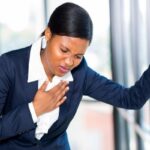Through the forest Tennant, MD, DrPH
Sudden and unexpected death can occur in a patient with severe chronic pain, and the terminal event may not be related to medical therapy. Fortunately, sudden death is not as commonly observed in patients with pain as in recent years, probably due to better access to at least some treatment. Sudden death still occurs, however, and professionals need to know how to identify a “at risk” patient.
The unexpected sudden death due to severe pain is not much appreciated, as many observers still see severe pain as an uncomfortable harmless, rather than a potential physiological calamity. In many cases, shortly before death, the patient informs the family that he feels sicker than usual and seeks relief in bed or on the couch. Unfortunately, some of these patients do not wake up. Other patients die, without warning, during sleep or are collapsed in the ground. Aggressive toxicology of modern medicine and forensic procedures after death contributed to poor understanding of the threat of pain death. In some cases,
This article is intended in part to draw attention to the fact that the mere discovery of drugs susceptible to abuse at autopsy does not necessarily mean that drugs have caused death. In fact, drugs may have delayed death. Some doctors were falsely accused of causing deaths due to excessive drug treatment when, in fact, insufficient treatment of pain may have caused death. Further, 1 Click here to visit the store and find much more …
Here are the mechanisms of sudden and unexpected death in patients with pain and some protective measures that practitioners must take to avoid being falsely accused of causing a sudden and unexpected death. More importantly, given here are some clinical tips to help identify the patient with chronic pain who is at high risk of sudden and unexpected death so that more aggressive pain treatment can be processed.
A brief anecdotal history
As a senior medical student at the University of Kansas in the 1960s, he was forced to take a rural precept with a rural doctor. As I made the rounds one day for the county nursing home, I heard a farmer’s wife declare: “Pain killed my mother last night.” Since then I have repeatedly heard that pain killed a loved one. Folklore often mentions that people die “from”, as well as “in” pain. There are, however, few written details of these events.
In the first years of my pain practice, which I started in 1975, I had several patients who died suddenly and unexpectedly. This rarely happens with me today, as I learned to “expect the unexpected” and identify which patients are at high risk of sudden death. In recent years, I have examined several cases of litigation and negligence of sudden and unexpected death in patients with chronic pain. In some of these cases, doctors were accused of over- or misprescribing and causing a sudden and unexpected death, although the patient would take stabilized doses of opioids and other drugs for long periods. In addition, the autopsy showed no evidence of pulmonary edema (a defining sign of overdose and respiratory depression). In cases where the doctor was falsely accused,
Setting and causing
unexpected deaths in patients with chronic pain often occur at home. Sometimes death is in a hospital or detoxification center. The history of these patients is quite typical. Most are very sick to leave home and spend a lot of time in bed or on the couch. Death usually occurs during sleep or when the patient gets up to go to the bathroom. In some cases, the family reports that the patient spent an extraordinary amount of time in the bathroom shortly before the collapse and death. Sudden and unexpected death, however, can occur anywhere at any time, such as pain patients who died unexpectedly and suddenly found themselves at work or in a car.
The coronary spasm and / or cardiac arrhythmia that leads to cardiac arrest or asystole is the apparent cause of death in most of these cases, since no gross pathology consisting of autopsy has been found. 2-5 Instantaneous cardiac arrest seems to be responsible for sudden collapse or death during sleep. Perhaps the constipation and the effort to pass in the stool can be factors of cardiac tension, since some patients with pain die during the defecation. Acute sepsis due to adrenal insufficiency and immunosuppression may be responsible for some sudden deaths.

Two mechanisms of cardiac death
Severe pain is a terrible stress. 6.7 Acute attacks of pain, acute or chronic, cause the hypothalamic-pituitary-adrenal axis to produce glucocorticoids (cortisol, pregnenolone), and catecholamines (adrenaline and noradrenaline), in an effort to contain stress biologically. 8.9 Catecholamines have a direct and potent stimulant effect on the cardiovascular system and results in severe hypertension and tachycardia. 10 Often, pulse rates can rise to more than 100 beats per minute and up to more than 130 beats per minute. Blood pressure can reach more than 200 mmHg systolic and more than 120 mmHg diastolic. In addition to the release of adrenal catecholamines, exacerbations of pain cause hyperactivity of the autonomic and sympathetic nervous system, which adds additional stimulus to tachycardia induced by catecholamines and hypertension. The physical signs of autonomic and sympathetic hyperactivity, in addition to tachycardia and hypertension, may include mydriasis (dilated pupil), sweating, vasoconstriction with cold extremities, hyperreflexia, hyperthermia, nausea, diarrhea and vomiting.


